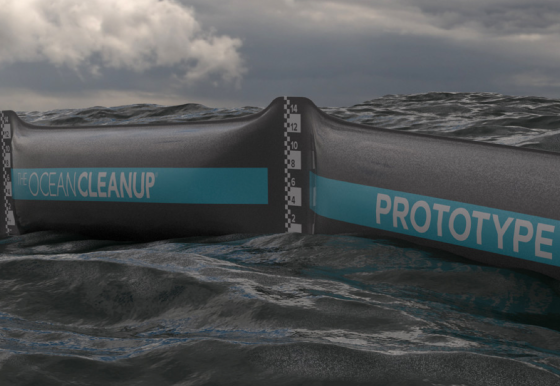Plan to clean the oceans of plastic soup starts North Sea trials

A project to clean the oceans of plastic soup will come a step nearer reality on Thursday when an experiment with a 100 metre long barrier begins 23 kilometres off the Dutch coast.
The project was launched by former Delft University student Boyan Slat in 2014 and uses long floating arms to capture the floating plastic but allows fish and plankton to pass through unharmed.
On Thursday the barrier, resembling black plastic pillows, will be towed to the location of the coast of Scheveningen, where it will be monitored for the effects of real-life sea conditions.
‘We want to see if we can build something which can withstand storms,’ Slat told broadcaster NOS. ‘The North Sea can be a violent place and if it remains whole here, it will stay whole anywhere.’
Funding
The Dutch government and construction company Boskalis have each put €500,000 into the experiment and the rest of the €1.5m cost has come from an anonymous benefactor. The experiment will take one year.
The floating barriers are one of the most critical elements of the concept, since they are responsible for capturing and concentrating the plastic debris. The real life trials follow extensive computer modelling and scale model testing in controlled environments.
A second test, off the coast of Tsushima Island in Japan, will take place in the second half of 2016, Slat said last year.
Thank you for donating to DutchNews.nl.
We could not provide the Dutch News service, and keep it free of charge, without the generous support of our readers. Your donations allow us to report on issues you tell us matter, and provide you with a summary of the most important Dutch news each day.
Make a donation